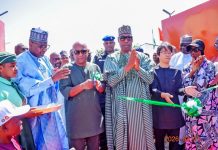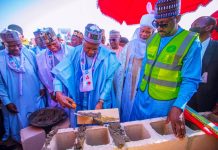FIC, Aba’s report.
The Abia State Governor, Theodore Orji has presented a budget estimate of N102.4 to the State House of Assembly for the 2015 fiscal year
The figure represents a 12% decrease from the 2014 budget outlay of N115.3 billion. While delivering the budget which he termed: “Valedictory Budget” on the floor of the House, Orji disclosed that the recurrent expenditure is N62.20 billion while the annual estimated expenditure is N40.18 billion.
Governor Orji said the decrease was occasioned by the global fall of crude oil price and premised on the framework of International Public Sector Accounting Standard, IPSAS and structured along a Medium Term Expenditure framework which takes into account projections for the years 2015 to 2017 using 2013 budget as the base year.
Orji expressed his expectation that the 2015 budget will provide the completion of all on-going projects; put in place job creation and poverty reduction; as well as physical and human infrastructure; and by so doing go a long way in transforming the state in critical areas such as peace and security, infrastructural development, health care delivery, improved internally generated revenue, IGR, education, education, agriculture, water resources, environment, housing, gender sensitivity and youth empowerment programmes, among others.
He however, reiterated that fiscal control policy measures would be put in place in order to achieve full implementation of the 2015 Appropriation Bill when it finally becomes law.
While responding, the Speaker of the House of Assembly, Rt. Hon. Ude Oko Chukwu urged the State Government to endeavour to consolidate and improve on the gains so far achieved with a view to returning the State to the part of sustainable economic growth and development through structural and institutional reforms.
The Speaker advised that job creation programmes be further formulated and implemented to make the domestic economy to become more productive.
He further urged for increased access to such variables that will continue to guarantee the attainment of the Millenium Development Goals,( MDGs) and the Abia state blueprint on vision 20-20-20 among others.





